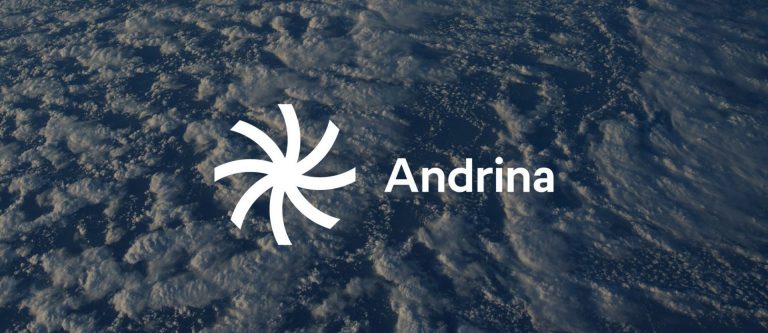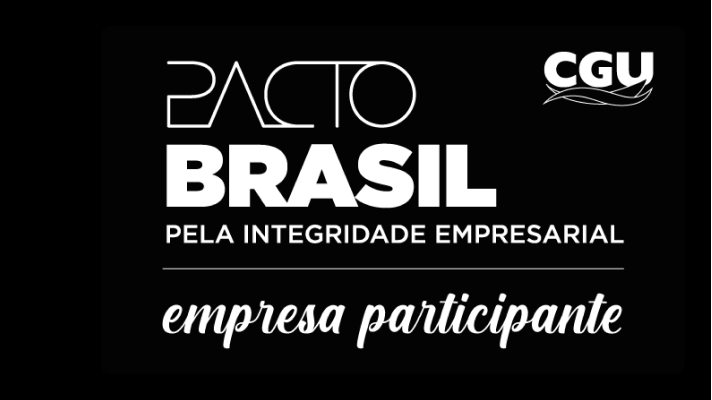> Company recovers net profit after three years. Growth compared to 2022 is R$ 744.5 million.
> In 4Q23, net profit reached R$ 37.9 million compared to a loss of R$ 38.8 million in 4Q22.
> Underwriting results closes 2023 positive at R$ 155 million, reversing a negative result of R$ 1.449 billion in 2022.
> Loss ratio calculated last year is 70%, recording a drop of 34.3 p.p. compared to 2022. It is the lowest since 2020.
> Combined ratio of 108.6% is 28.1 p.p. lower than that recorded in 2022.
> Company reports first financial statement in IFRS 17.
IRB(Re) closed 2023 with a net profit of R$ 114.2 million, reversing the loss of R$ 630.3 million recorded in 2022. There was growth of R$ 744.5 million in the annual comparison. The numbers, released today (03/28), consider Business View and show the evolution of the reinsurer, which achieved positive results for the fourth consecutive quarter: R$ 37.9 million in 4Q23 compared to a loss of R$ 38.8 million in 4Q22.
“Our numbers show that, quarter by quarter, we have consistently evolved in net and subscription results. We started 2023 with a solvency ratio of 101% and ended it with 146%, with business results generated. We work to produce sustainable results in the long term. There can be, of course, between months and quarters, inherent volatility in the business. But we are confident that we will continue to evolve quarter by quarter”, comments Marcos Falcão, CEO of IRB(Re).
“In 2024, we remain committed to the profitability of the business and controlling the items that are under our management: price, expenses and costs. This week, we reported positively the January numbers for Susep. Net profit was R$ 36.8 million, with underwriting results of R$ 45.2 million, a loss ratio of 55.3% and a combined ratio of 97%. We thus will continue to be increasingly closer to our clients and investors, creating intimacy and improving our processes and the quality of our services”, adds Falcão.
Positive underwriting result
The IRB(Re) underwriting result also advanced and ended 2023 positive at R$ 155 million, compared to negative R$ 1.4 billion in the previous year. The rural line recorded the best result, with R$ 216 million in 2023 against negative R$ 949.9 million in 2022. It is worth mentioning that last year, the underwriting result in Brazil was positive: it went from negative R$ 893 million, in 2022, to positive R$ 352.8 million. Abroad, in 2023, the underwriting result improved, but was still negative at R$ 197.7 million, compared to negative R$ 556.4 million in 2022.
In line with the portfolio cleaning, which was accelerated in 2023, the total premium written fell 17.4% compared to 2022, reaching R$ 6.521 billion. Last year, the share of businesses signed in Brazil increased, reaching 76% of the portfolio. This percentage was 68% a year earlier. In relation to volume, there was a decrease of 7.4% compared to 2022: R$ 4.980 billion. The premium issued abroad, which represented 24% of the portfolio, totaled R$ 1.540 billion in 2023, a drop of 38.7% compared to 2022.
“The reduction in the total written premium is consistent with the IRB(Re) strategy of improving underwriting quality. Last year, we renewed 83% of all the businesses we wanted to maintain and continued with a diversified portfolio across nine business lines. Furthermore, for every four new contracts prospected, we closed one. It is an important sign that we are closer to our customers. In relation to business distribution, in 2023, the equity line remains the highlight, with 37% of the portfolio”, explains Daniel Castillo, Vice-President of Reinsurance at IRB(Re).
“Our underwriting strategy remains centralized in Brazil. In 4Q23, deals closed here accounted for 82.8% of the portfolio. We consolidated our share in the local market, leveraging our competitive advantages. One step forward, we have refined our strategy so that, by 2024, we will concentrate 70% of our business in Brazil, 20% in Latin America and 10% in other international exhibitions. In this way, the global market continues to be analyzed and we maintain the strategy of developing non-proportional businesses, without taking on large exposures. I believe we have good opportunities in Europe”, adds Castillo.
Total retained claims fell 45.3%
Total retained claim fell 45.3%, comparing 2023 with 2022, closing at R$ 2.906 billion. As a result, the loss ratio went from 104.3% to 70%, a drop of 34.3 p.p.. The company also improved the combined ratio – which includes loss ratio, commissions and other expenses – by 28.1 p.p., going from 136.7% in 2022 to 108.6% in 2023. Considering only non-life business lines, the combined ratio was 106.4%.
“In 4Q23, the loss ratio was 55%, helping us to close 2023 with 70%, the lowest rate since 2020. Considering geography, there was a reduction of 44.8 p.p. in Brazil – from 105% in 2022 to 60% in 2023 – and 16 p.p. abroad – from 104% to 88%. It is worth recalling that the loss ratio results from contracts signed in previous periods. Therefore, the effects of contracts signed before 2020 still impact our numbers, but they continue to decrease. In 2023, R$ 713 million or 25% of claims paid originated from such contracts”, explains Castillo.
Cash flow evolution
The operating cash consumption accumulated over the last 12 months presented a result of R$ 518 million. “The evolution of operating cash is in line with our expectations. The numbers for the last few quarters show an improvement in relation to the same quarters of the previous year. In 4Q23, specifically, there was a generation of R$ 256 million due to the seasonality in the operation, which makes the flow positive. It is worth mentioning that we have developed several improvement actions in our collection management, which already contribute to lower cash consumption. I highlight that, in October, we paid R$ 487 million in debentures and reduced our debt by half”, says Rodrigo Botti, Vice-President of Finance, Actuarial and Technology at IRB(Re).
In 2023, there was a 7.4% increase in administrative expenses, mainly due to the agreement signed with the US Department of Justice (DoJ), of R$ 25.4 million, and the expense with the two Voluntary Dismissal Programs ( PDV), of R$ 13.2 million. “Excluding these non-recurring effects, administrative expenses would total R$ 315.4 million, below the R$ 329.7 million recorded in 2022”, highlighted Botti.
The company’s financial and equity results ended 2023 at R$ 548.7 million, a reduction of 20.5% compared to the previous year (R$ 690.1 million). It is worth noting that non-recurring effects, referring to legal gains and sale of assets, have an impact on the values recorded in 2022. “We started 2023 with R$ 9 billion in financial assets and ended it with R$ 8.3 billion”, said Paulo Valle, General Director of IRB (Asset), the reinsurer investment branch.
Adequacy in regulatory indicators
The IRB(Re) must observe two regulatory indicators, as per Susep regulations, the body responsible for supervising the insurance and reinsurance sector: Adjusted Net Equity Adequacy Ratio in relation to the Minimum Required Capital (CMR) and the Technical Provisions Coverage Ratio. In 2023, the company presented adequacy in both ratios.
“The first ratio closed the year with adequacy of R$ 534 million, that is, 46% above the required capital, the best level since September 2021. It is worth mentioning that, with the best risk selection, we reduced the need for minimum capital required by more than R$ 400 million in 2023. The guarantee adequacy ratio ended last year with adequacy of R$ 438 million”, says Thais Peters, Director of Internal Controls, Risks and Compliance at IRB(Re).
IFRS 17
IRB(Re), in addition to reporting its numbers considering the Business Vision, used by the company to make its decisions, published its 2023 Financial Statements in IFRS 17, as required by the Brazilian Securities and Exchange Commission (CVM). The international standard, aimed at the insurance and reinsurance market, treats operational flows brought to present value, considering the time value of money.
“From now on we report our numbers using another accounting methodology. IFRS 17 is a lens that allows you to look at a projection for the future. The company’s result is the same, what changes is the temporality. Applying the new methodology, we see a transfer of results from 2022 to 2023, but, in total, the results are practically equivalent. We understand that understanding this transition is a challenge for the market as a whole. I reiterate that the company, at this moment, will continue to be managed by the IFRS 4 Business View, adopted by our sector regulator, Susep”, says Falcão.
Considering the methodology in IFRS 17, the company’s result in 2023 was a negative R$ 123.8 million, compared to a negative result in 2022 of R$ 420.7 million, also in IFRS 17. The sum of the value calculated in 2022 and 2023 is negative R$ 544.5 million. The value is close to the negative balance determined in IFRS 4, considering 2022 and 2023: R$ 516.1 million.
“Analyzing data in IFRS 17 requires looking at longer periods. See: the 2022 result improved by R$ 210 million, and the 2023 result worsened by R$ 238 million. In other words, over a combined two years there was a variation of R$ 28 million. It is important to note that, with the adoption of the IFRS 17 methodology, the company’s net equity closed 2023 at R$ 4.257 billion. In other words, it varied by less than 1%, positively, considering the result in IFRS 4, which resulted in a PL of R$ 4.216 billion”, comments Botti.
The complete Performance Analysis is available on the company’s Investor Relations website.




